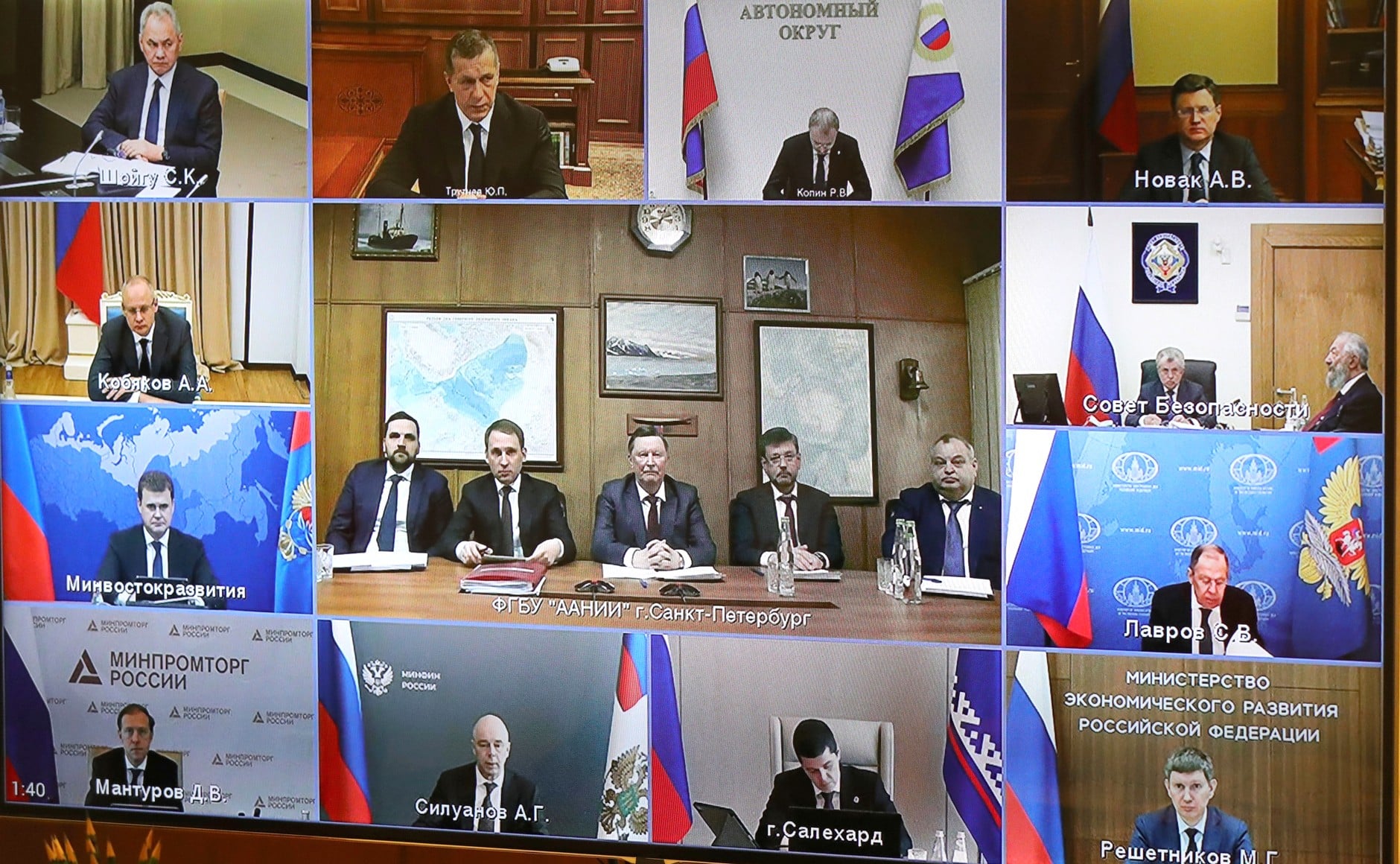How Is Climate Change Shaping Russia’s Arctic Policy and Activities?

Russian policymakers and scientists, including Foreign Minister Sergey Lavrov, at a meeting on the development of the Arctic in Novo-Ogaryovo in April 2022. Photo: Kremlin.ru
Climate change is one of the greatest challenges of our century and Russia is one of the most affected countries. This chapter explores how immense transformations of the Arctic environment are reflected in the rhetoric and activities of Russian Arctic policy. The focus is on climate change and its effects on cooperation and diplomacy with other nations, security concerns, energy and natural resources, and shipping and transport.
Reports published by the Intergovernmental Panel on Climate Change (IPCC) reveal that climate change is affecting the whole world. Perhaps the most impacted region is the Arctic, generally defined as the polar region in the northernmost part of Earth above the 66°33’N latitude line. The effects of global warming are noticed sooner and with more severe consequences in the Arctic. These include melting sea ice, thawing permafrost, eroding coastlines and extreme weather. A 2022 report from the Russian Federal Service for Hydro-meteorology and Environmental Monitoring found that average temperatures along the Russian Arctic coast have increased by approximately 5 degrees Celsius since 1998. Air temperatures have been rising at a rate three times the global average over the past few decades, in part because of a phenomenon known as Arctic amplification, that is, the loss in sea ice that gives way to a darker, more heat-absorbent ocean.
The intro is part of a chapter – to be downloaded below – for a report titled, Environment in Times of War: Climate and Energy Challenges in the Post-Soviet Region, published by the Institute for International Political Studies (ISPI) and supported by the Italian Ministry of Foreign Affairs. The full report also includes chapters on Russia’s “green shift,” EU-Russia energy relations, food security, environmental challenges in Central Asia, and desertification.